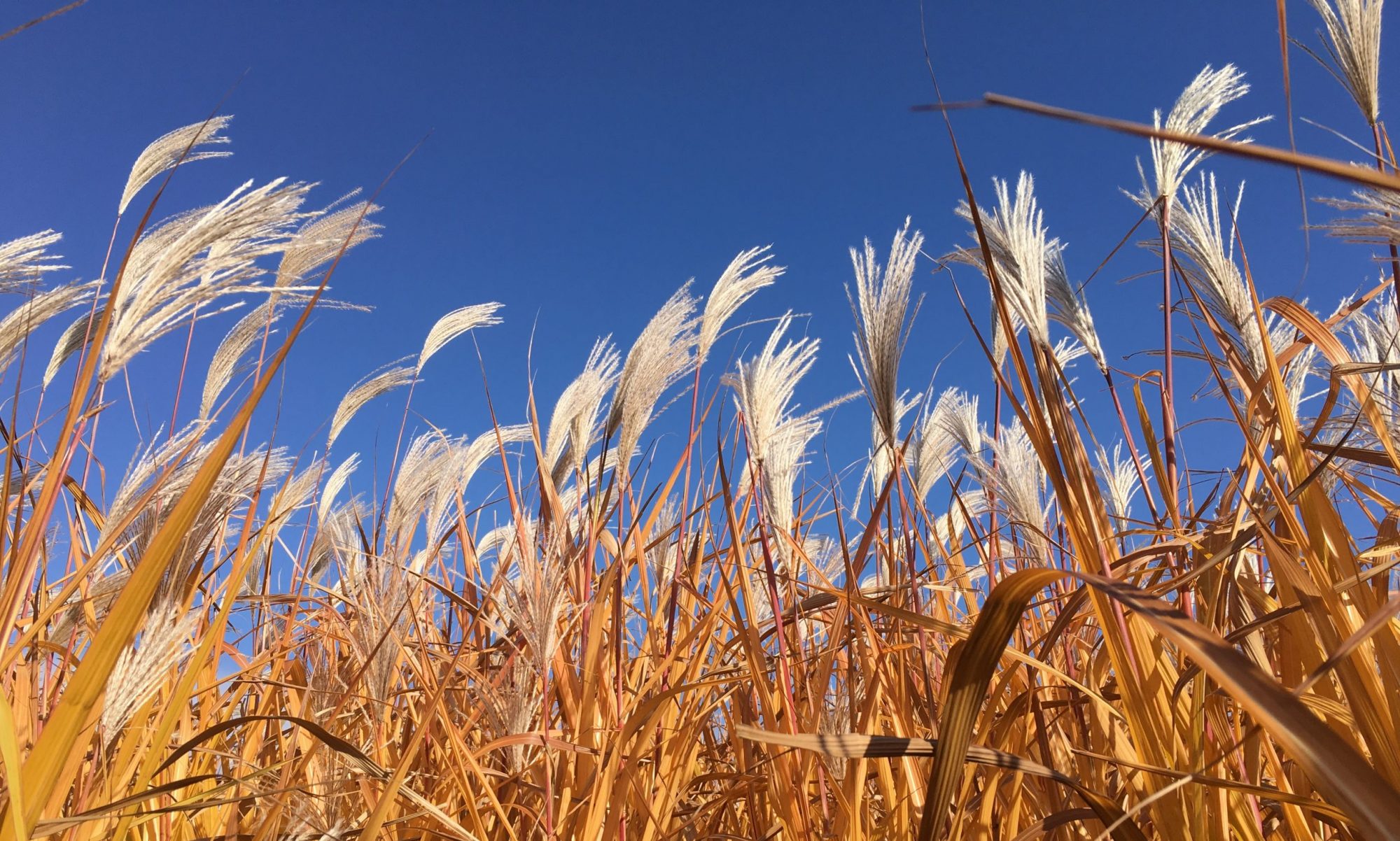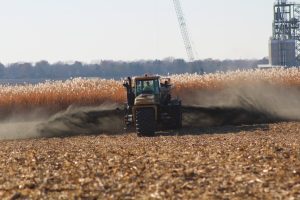
In partnership with the Leverhulme Centre for Climate Change Mitigation.
Sequestering atmospheric carbon through weathering of rock minerals in agricultural soils
Carbon sequestration is a natural effect of mineral weathering on Earth’s surface, constrained by the rate of weathering of rocks. We investigate “enhanced weathering,” using finely ground silicate rock as a reactive substrate for carbon sequestration as bicarbonate. Pulverized basalt, chosen for its fast weathering rate, widespread availability, and chemical composition, is applied using fertilizer or limestone spreading equipment. We measure the multiple effects of land application of rock dust: silica/calcium /magnesium fertilization of crops, pH buffering, nutrient availability, soil structural changes, crop nutrient content and yield, and nutrient leaching in agricultural runoff water.
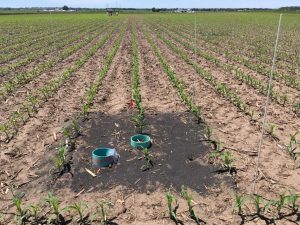
The dominant corn-soybean agroecosystem of the Midwest excels at production of calories-per-acre, but lacks some of the ecosystem services provided by natural systems. Perennial grasses under investigation for cellulosic bioethanol production have large, deep rooting systems for organic carbon sequestration, reduced fertilizer and pesticide usage, and no-till management strategies that more closely mimic the prairie that existed in Illinois before European settlement. We apply basalt to both conventional corn-soybean fields and perennial Miscanthus x giganteus.
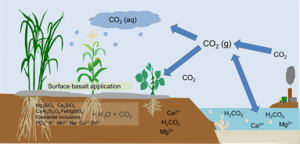
The Midwestern corn/soy system is typical of agriculture in the United States, where small changes soil properties are magnified by large land areas. The potential to sequester atmospheric carbon through enhanced weathering multiplied by the available land area of the Midwest could result in effects at a global scale. Our research objective is to quantify rates of weathering in annual and perennial crops, and to determine the effects of weathering byproducts on crop production, carbon sequestration, greenhouse gas production, and nutrient availability in the Midwestern agricultural ecosystem.
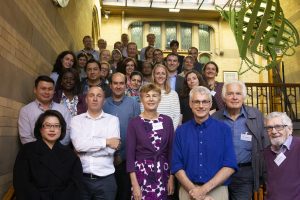
Our lab partners with the Leverhulme Centre for Climate Change Mitigation (lc3m.org) under Dr. David Beerling FRS at the University of Sheffield and colleagues at the University of Southampton in the UK.
